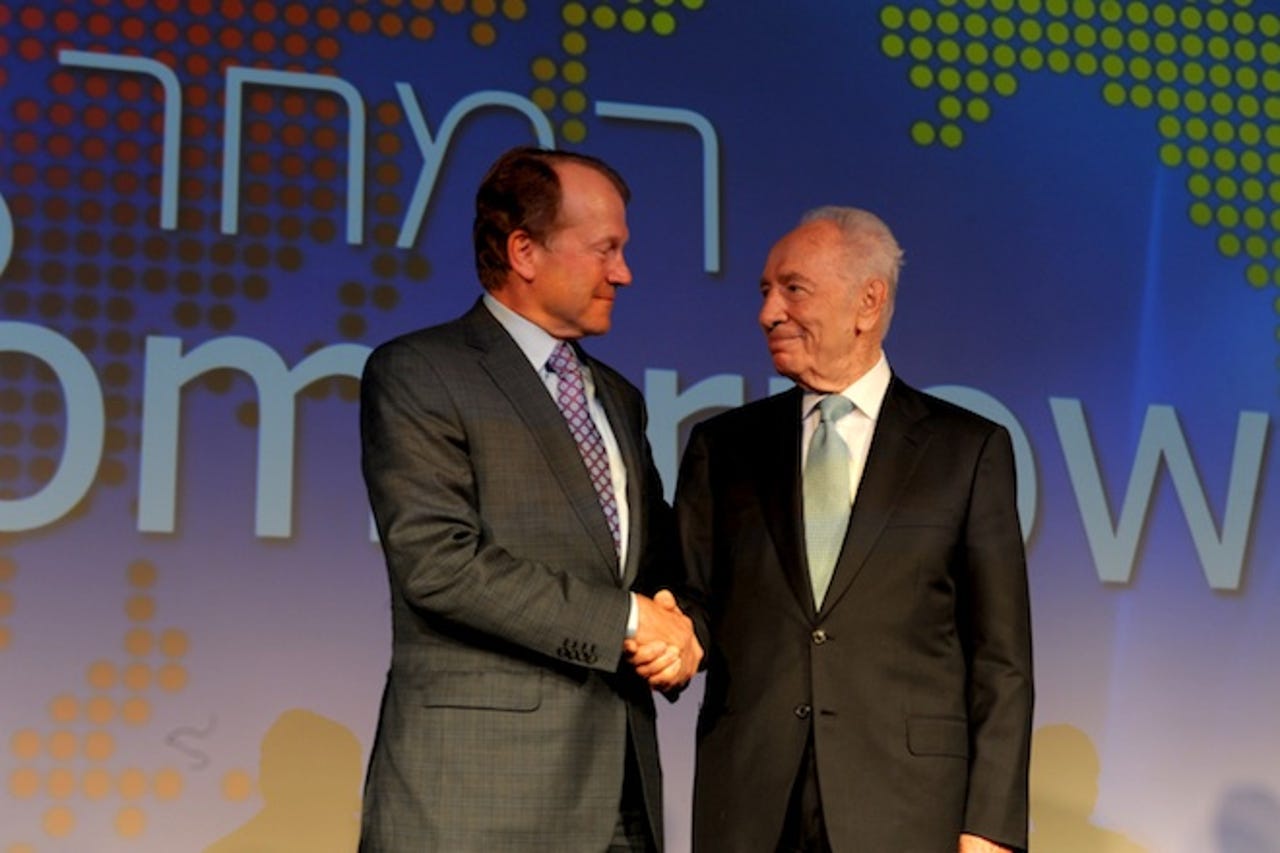Israel's 1Gbps fiber will show the world what superfast broadband can really do: Cisco CEO

Israel is to be Cisco's "test case" for how much better a fully connected and fully digital world can be, according to the company's chief executive, John Chambers.
"All around the world countries have the same concerns — providing jobs for their citizens, educating youth, providing health care, and security," Chambers said at a press conference in Jerusalem last week.
"The broadband infrastructure is already having a huge impact on these issues, but there's much more that can be accomplished, and we want Israel to be the example of how a fast broadband infrastructure will change society."
Chambers was in Israel to visit the half dozen companies Cisco has acquired in Israel (including NDS, which still does the bulk of its R&D in Israel), attend a birthday party for Israel's nonagenarian President, Shimon Peres, and to speak at Israel's annual Presidential Conference.
But he was also here to sign the deal for the development of Israel's FTTH (fiber to the home) network, a project that will be led by Sweden's Viaeuropa, using Cisco networking technology throughout.
The network should be completely operational in five to seven years, giving Israelis the opportunity to surf the net with downlinks of 1Gbps, ten times faster than anything the local competition — chiefly the Bezeq phone company and HOT cable service provider — can provide with their FTTN (fiber to the node) network, which delivers a top speed of 100Mbps.
Chambers predicts the network will bring in major changes: healthcare where doctors are connected instantly to providers' and hospitals' databases, with all records kept electronically and updated constantly; an education-anywhere system, where students can learn at home, in class, or elsewhere, communicating with teachers and fellow students over the internet; safer roads and streets (a major issue in road accident-prone Israel), with traffic authorities able to keep better tabs on speeders and unsafe drivers; and a proliferation of "internet of things" technology, with sensors keeping air conditioners, refrigerators, washing machines, front doors, and more connected to systems than can enable better and more efficient allocation of electricity and other resources. In a few years, all of this should be in place, according to Chambers.
When asked why he saw this vision as something to be carried out in Israel — as opposed to places such as South Korea or Japan, which already have extended FTTH penetration — Chambers answered that, unlike most other places, Israel "is truly a start-up nation".
"Israel is second to the US in the sheer number of startups, but because of the population differences, Israel's 'per capita startup' ratio is much higher," he said.
Israel's governmental leaders — and opposition leaders as well — are all on board, too. "Your government gets it," he said. "They realize we are the cusp of something new and very exciting. It's about country transformation, and if it works here this could be great news for the rest of the world."
With the FTTH network in place, Chambers expects to see an even greater growth in the Israeli startup scene — and that was one reason, he said, the company had decided to start its own $15m venture capital fund for Israeli startups, especially in the cybersecurity area (the first VC fund in Israel to be completely funded by an enterprise without government backing).
In addition, he said, Cisco is setting up its own cybersecurity R&D lab, which will include a simulation laboratory that will support research in a range of areas including advanced threats and device security, and analyse security in the financial, health and industrial sectors.
